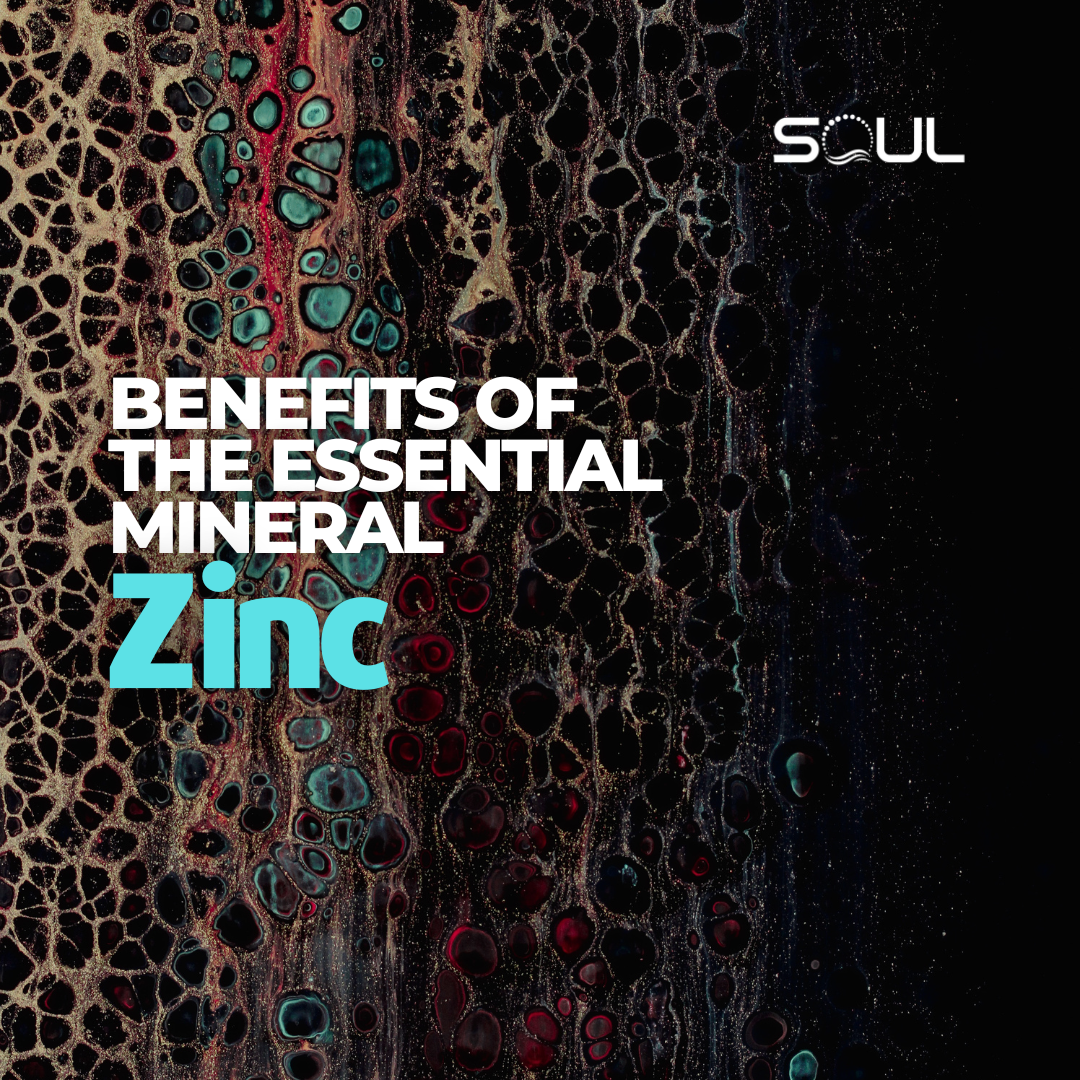
The Essential Mineral: Exploring the Health Benefits of Zinc
When it comes to essential nutrients, zinc often flies under the radar. In a world obsessed with vitamins C, D, and Omega-3s, zinc is like the unsung hero quietly orchestrating some of the most vital processes in our bodies. But make no mistake, this trace mineral is a game-changer—an essential mineral so powerful that without it, our immune system would crumble, wounds would refuse to heal, and even our brain's cognitive functions would suffer. So, let’s get up close and personal with this mighty mineral and discover why you should be paying attention to zinc.
Immune System Support: Zinc, The Guardian of Immunity
Imagine your immune system as an army standing guard, ready to fight off any invaders. Zinc is the battle strategist, helping in the production and deployment of T cells, which are your body's frontline defense. Without enough zinc, these soldiers are ill-equipped, poorly trained, and your body’s defenses falter. Zinc’s role here is mechanistically fascinating—it functions as a cofactor in the genetic programming of T cells and natural killer cells, enabling them to recognize and neutralize threats like a well-oiled machine. When pathogens try to slip through the cracks, zinc rallies your immune response, ensuring balance and efficiency, like a seasoned commander knowing precisely when to strike.
Wound Healing & Tissue Repair: The Builder Behind the Scenes
Think of zinc as your body’s foreman, coordinating the construction of new tissue. In wound healing, zinc is not merely an assistant; it’s an essential director. From collagen synthesis to cell proliferation, zinc is at the helm, regulating enzymes and proteins that facilitate repair. Imagine it like this: every time you nick yourself, zinc oversees the construction crew, driving cell growth and ensuring the formation of a healthy scar. And the anti-inflammatory properties? Zinc orchestrates this process too, fine-tuning your body’s response to minimize unnecessary swelling and discomfort.
Antioxidant Activity: The Defender Against Oxidative Stress
Every day, our bodies wage a silent war against oxidative stress—the byproduct of our very existence. Free radicals, those unstable, cell-damaging molecules, are the enemies. Enter zinc, the hero with antioxidant superpowers. It partners with superoxide dismutase (SOD), one of the body’s most potent antioxidant enzymes, to neutralize these radicals. This partnership is like a firefighter team swiftly dousing the flames before they spread and wreak havoc on cellular health. By doing so, zinc not only fights aging but also staves off inflammation and diseases. If oxidative damage is the rust corroding our machinery, zinc is the oil keeping it running smoothly.
Reproductive Health: The Unsung Key to Fertility
Zinc’s influence extends beyond immune support and tissue repair—it plays a crucial role in reproductive health. In men, zinc acts as the architect in the production and maturation of sperm and is essential for testosterone synthesis. Picture zinc as a craftsman, carefully fine-tuning the blueprint of male fertility. For women, zinc is indispensable for the regulation of reproductive hormones, especially estrogen. During pregnancy, it’s essential for proper fetal development, highlighting how zinc’s presence is critical at the most foundational stages of life.
Cognitive Function: The Brain’s Silent Ally
Zinc doesn’t just support physical processes; it’s a brain booster too. This mineral is like the backstage technician regulating neurotransmitter production and synaptic signaling. Think of your brain as a complex circuit board where every connection matters. Zinc ensures that the signals flow seamlessly, promoting learning, memory, and mood stability. Mechanistically, zinc modulates synaptic plasticity—the brain’s ability to adapt, learn, and store new information. It’s like having a skilled conductor ensuring each neuron plays its part in the symphony of cognition.
Growth & Development: The Architect of Life’s Foundations
During childhood and adolescence, growth is everything. Zinc is the cornerstone of development, driving processes like DNA synthesis, cell division, and protein synthesis. Without zinc, growth is stunted, sexual maturation is delayed, and immune function falters. It’s not just a building block; it’s the key architect, laying down the foundation of health and vitality for years to come.
Eye Health: The Protector of Vision
Zinc is highly concentrated in the retina, playing a pivotal role in vision. It interacts with vitamin A, supporting the production of melanin, the protective pigment in your eyes. Zinc’s importance is evident in studies that show it can reduce the risk of age-related macular degeneration (AMD). If the eyes are windows to the soul, zinc is the glass cleaner, ensuring that vision remains sharp and clear for years to come.
The Bottom Line
In the world of nutrition, zinc might not be the star of the show, but it’s certainly the director behind the scenes. From safeguarding your immune system and repairing tissues to promoting reproductive health, cognitive function, growth, and eye health, zinc is indispensable. Yet, as with any powerful tool, balance is crucial. Overloading on zinc can disrupt copper levels and potentially cause harm, so it’s best to maintain a measured intake within the recommended dietary allowances.
When you consider zinc’s far-reaching benefits, it’s easy to see why it deserves more credit. A little zinc goes a long way—so don’t overlook this mighty mineral. Whether through a well-balanced diet or a carefully considered supplement regimen, let zinc be your secret weapon for health and vitality. And remember, always consult with a healthcare provider to find the dosage that’s just right for you. After all, it’s not about taking more; it’s about taking smart.
These statements have not been evaluated by the Food and Drug Administration. This product is not intended to diagnose, treat, cure or prevent any disease. This article is for informational purposes only and is not a substitute for professional medical advice. Always consult your healthcare provider regarding any health concerns or before starting new supplements.
